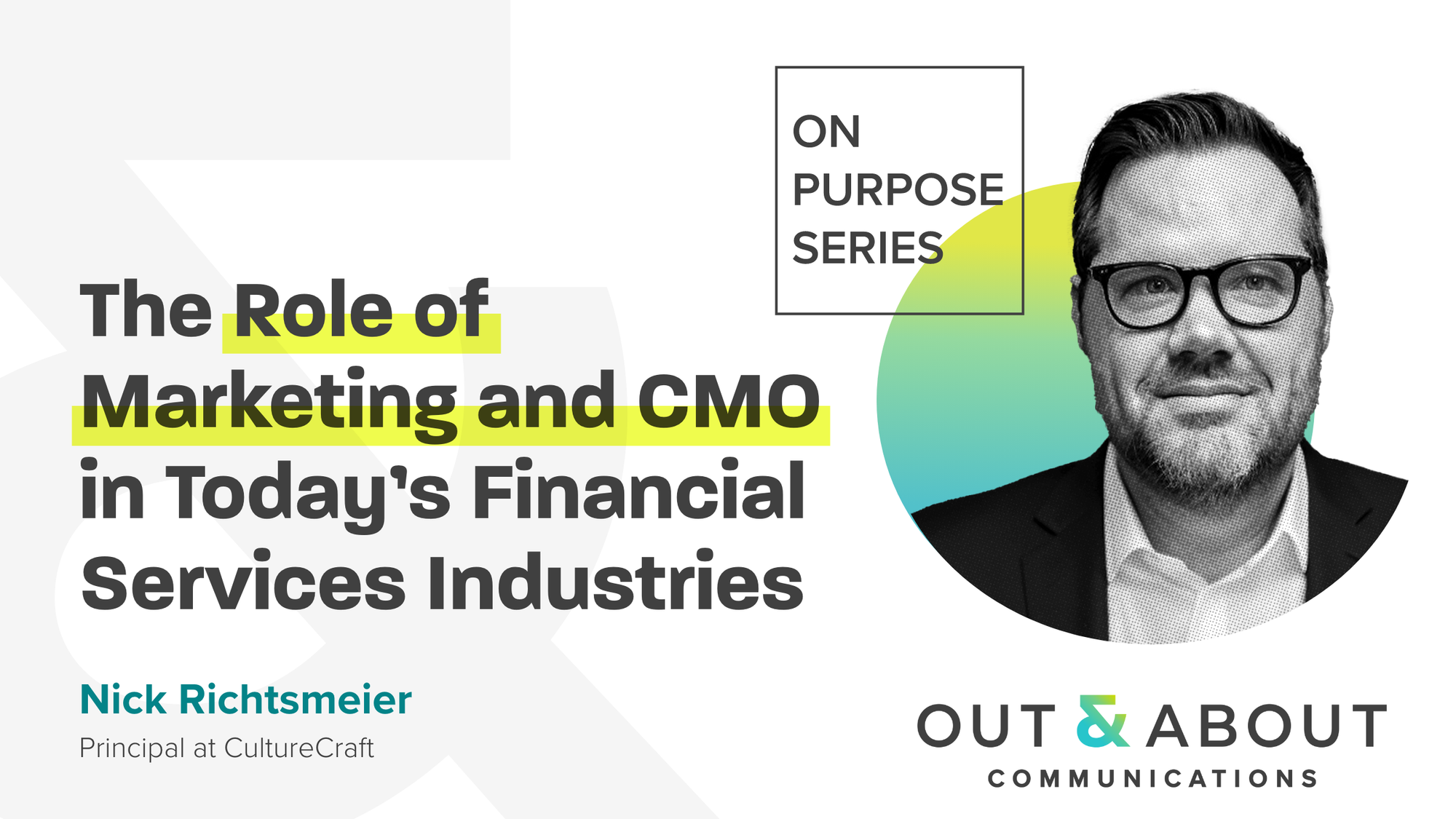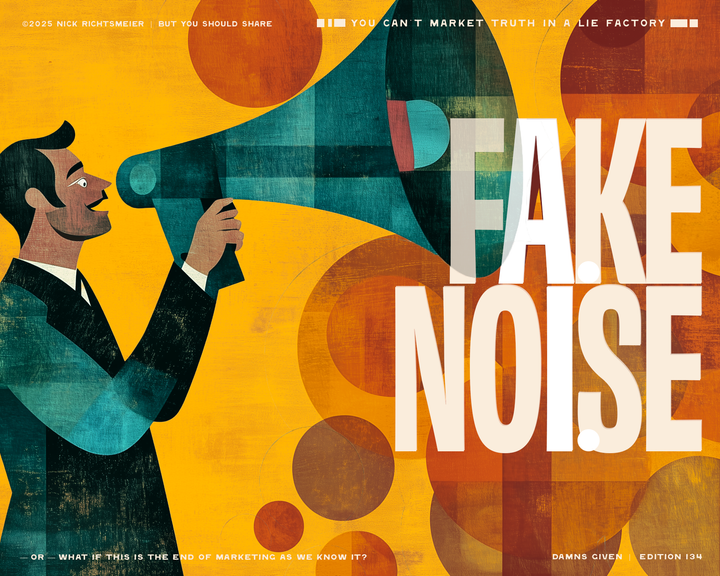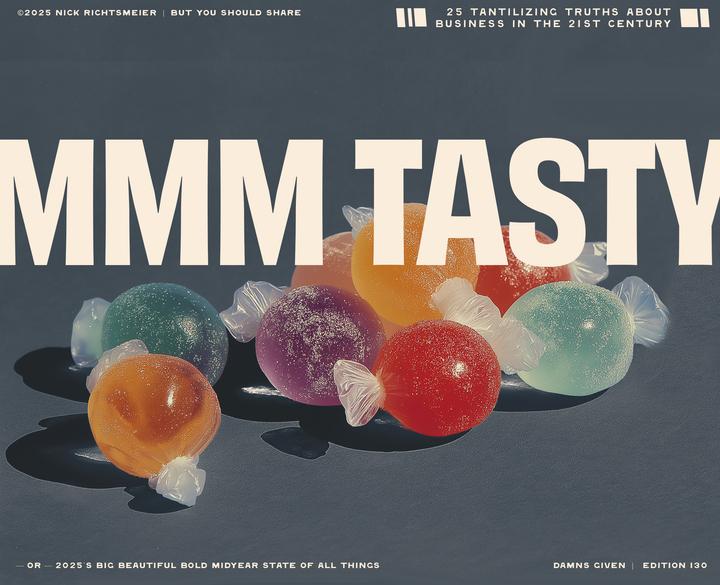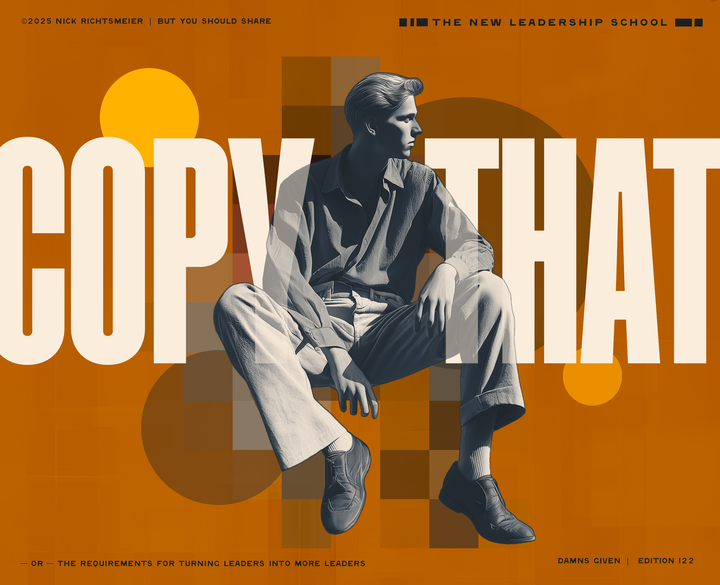How everything gets better
Changing our minds is an essential feature of commerce. If people can't retain the agency, then only very powerful actors with very deep pockets get to decide for everyone else. The good news? The future outlook on getting our minds back looks pretty good.
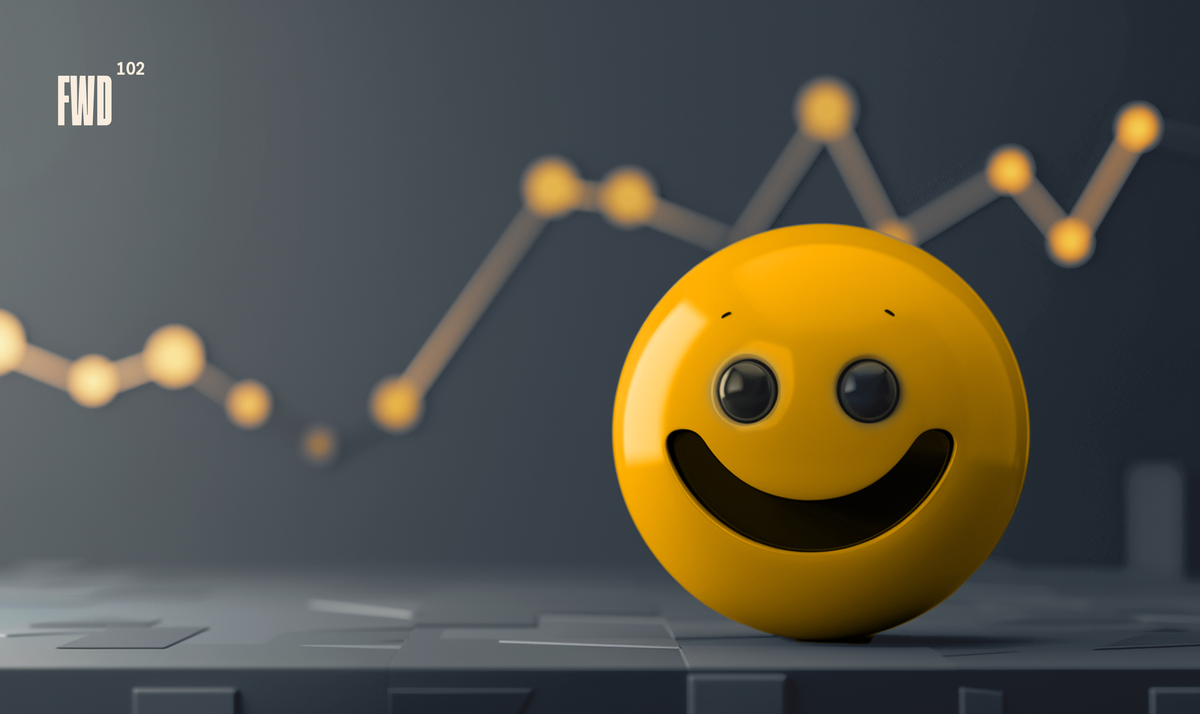
Quick update for those just joining us (welcome, BTW)... In the last two editions of MADE I covered two big updates:
- The end of the Open Web, Google's search dominance, and why your 2018 marketing tactics are probably wasting you LOTS of money
- What to do now to build a community, accelerate demand, and turn strangers into loyal stans.
It's been a big two weeks on this front, not just here at CultureCraft, but across the space, and we'll hit several of those updates below in this week's Edition of FWD. Some of you want to skip all this and just spend 30 minutes talking about how it all applies to you. That's what our 1:1 AUAs (Ask Us Anything, for those who don't speak Reddit) are for, and I've got several on the books but have room for more, so feel free to jump in.
Many of you read here so you don't have to follow along elsewhere (glad you got the value prop of these essays), but if you are following along to the cultural zeitgeist, you may notice an overwhelming melancholy taking over.
- The Internet as we know it is gonna be overrun by (poorly named, not intelligent at all) AI, and there's nothing we can do about it.
- The news media sold out to the platforms (Google, Meta) in the early 2010s and decimated their business models all for the false hope of traffic, and now we can't have reliable news anymore... at a very... high-risk moment.
- Creative media (movies in particular) are not coming out of the strikes well, producing shadow art of its former self, pandering to bygone trends, and pushing content through the box office no one wants, while putting the stuff we do want on Netflix which is a terrible viewing experience. (Those Netflix digital cameras, man... why does everyone look like plastic?)
Does everything suck?
Part of the inherent side effect...
of Digitize Everything
⬇️
Death of all Media
⬇️
Hyper Monopolies on Attention
⬇️
Hyper Stimulated yet Uninformed Society...
...is the loss of perspective. We are biased toward bad news.
It's much more difficult to discern the world than it used to be. The promise of "access to all knowledge" on the Internet was that by accessing more info, we would know more, and by default be better mapmakers of reality. What Bill Gates (I read The Road Ahead in 1995, and still have my annotated copy) and the rest of the prophets of this false religion failed to tell us is that we would need reliable tools to sort this information. Those tools bend to the will of those who make them and absorb their values. Google Gemini absorbs the values of Sundar Pichai (CEO) and his belief that close enough is good enough.
Before the Internet, we were stuck with the values and lenses of the people we chose around us. That had real limits, too. But we were the choosers. It wasn't exceedingly difficult to pivot from the bad ideas of neighbor Joe to the more informed and nuanced thinking of neighbor Susan who lives a few miles away.
Changing our minds was an effort, but it didn't require fighting a global multi-trillion-dollar apparatus.
Changing our minds (and our customers changing their minds) is an essential feature of commerce. If people can't retain the agency to change their own minds, then we become a top-heavy society and economy where only very powerful actors with very deep pockets get to decide for everyone else.
No bueno.
The good news? The future looks a lot like the past, only more so. And we can see it, in this week's four damns to give. Let's dive in.

YES, this is possible
You've probably heard me mention the genius of Will Guidara's Unreasonable Hospitality. It was the foundation for a key plot point in the if-you-haven't-seen-it-go-now The Bear and has made many best-of lists. It's the kind of book that business people rave over because it models the panacea of feel-good advice: Do great stuff for your customers.
But here's the best news: you can apply it and it works. We've been using it to build client experience modules for clients for about six months now to rave reviews. We've been operationalizing its principles, helping our clients transform what they do for their clients.
A lot of business books are good in theory, but impractical in practice. Not this. And that couldn't be better news.
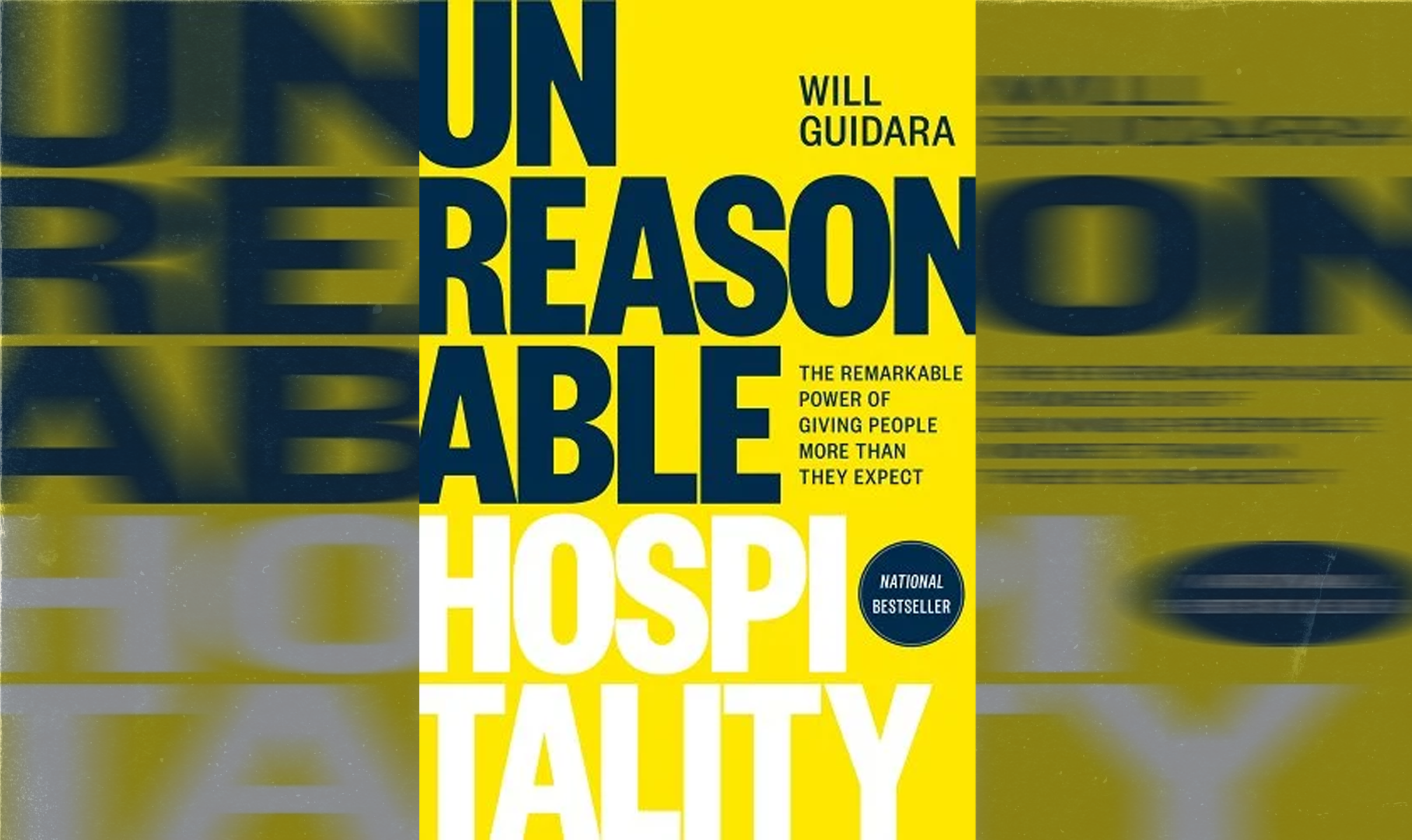
NO to price gouging
The battle cry against extractive inflation (the kind where whole industries massively increase their margins while aggressively raising prices and simultaneously blaming it on a generic "inflation") is finally taking hold with Target, Walgreens, and even possibly movie theaters, lowering prices in the face of a skeptical public.
Inflation sucks. But when companies use it as an excuse to gouge their customers rather than cover costs, it deflates trust rapidly. Consumers' price consciousness is starting to have an effect, forcing industries to care about the relationship between price and value again, rather than just selling you 17 Doritos in the same size bag that used to be called "Family Size."
MAYBE face-to-face?
As digital engagement gets more and more irritating (even Zoom is peppering us with AI interruptions... ✨ is the new icon for "we hate you, here's some crap you didn't ask for) the draw of face-to-face interaction is on the rise.
Gen Z wants to be in office. (Too bad they can't find their bosses).
I love Gen Z. Perhaps because my house is full of them, but they're sense for connection, their ridiculous slang. Chat, the rizz is strong, no cap.
And they are leading the charge toward more real-world interactions. To that end, I'm planning 3-4 face-to-face dinners with old friends and new in a few cities before the end of the year. Probably Chicago, Denver, San Diego, and maybe one more.
Reply to this email with your city of choice if you want to be included!
SERIOUSLY the truth will set you free
An insider at Google dumped a few thousand lines of code onto the Internet this week, exposing long-held secrets about how the black-box search works and doesn't. The TL;DR? Google has been lying to businesses for a while now about how the algo works (Google's battles in court have revealed this as well) and that the whole thing is firmly biased toward very large established brands. It's been almost a decade since you could game SEO to break through to the front of the line.
Why is this good news? Because the truth is always good news. Hopefully, thousands of small and mid-sized businesses will free their marketing budgets from chasing Google's tail and redirect toward actual trust-making activities that grow the brand and increase valid revenue opportunities.
If you want a more detailed breakdown, the best I've found is here.
Now shift to the personal
The hunger for personal connection is at an all-time high. Ventures that can selectively use digital applications to operationalize the boring shit so they can go all in on personalized connection are going to win in the next five years.
But this will require shifts in your growth religion, your growth strategy, and your growth budgeting (not more money, just money better allocated) to make this happen. As always, we're here to help.
Nick, out in the world, practicing what I preach.
I'm upping my own game of connecting more, having better conversations, deepening relationships. Eating my own cooking, as one does. One of my favorite new friends? Lauren Hong at Out & About Communications. She and I recorded a podcast together and had a blast. You should listen or watch or read the transcript. All are linked below:
